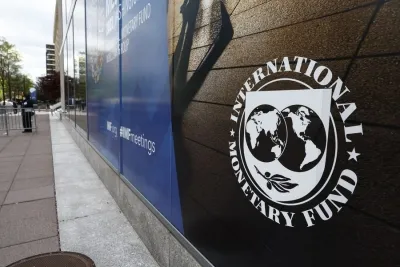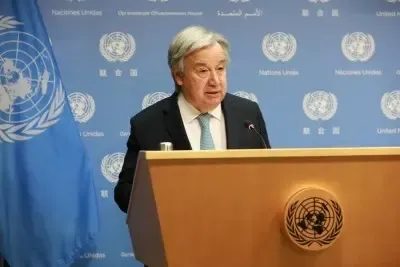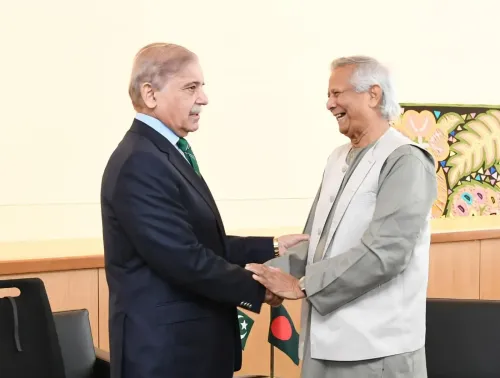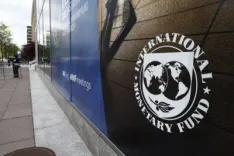How Does the US Announcement on Balochistan Limit China's Influence and Uncover Pakistan's Double Standards?
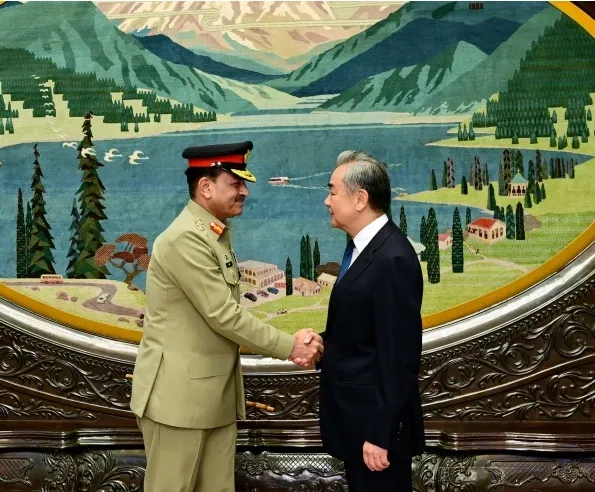
Synopsis
Key Takeaways
- The US designates BLA and Majeed Brigade as FTOs.
- This action limits China's regional influence.
- It reveals Pakistan's double standards in dealing with terrorism.
- Balochistan is rich in natural resources yet remains underdeveloped.
- Stability in Balochistan is crucial for CPEC's success.
Washington, Aug 13 (NationPress) The United States has officially classified the Balochistan Liberation Army (BLA) and the Majeed Brigade as Foreign Terrorist Organisations (FTO). Additionally, US President Donald Trump’s announcement regarding investment in oil exploration within Balochistan not only underscores America’s resolve to combat global terrorism but also restricts China's ability to leverage security concerns as a pretext for enhancing its military presence in the region—particularly under the guise of safeguarding the China-Pakistan Economic Corridor (CPEC), as noted by a prominent international analyst on Wednesday.
On Monday, US Secretary of State Marco Rubio designated the BLA and its affiliated group, the Majeed Brigade, as FTOs, highlighting that this decision reflects the Trump Administration’s dedication to combating terrorism.
Last month, Washington also designated The Resistance Front (TRF) as an FTO and Specially Designated Global Terrorist (SDGT), affirming India's long-held position that the TRF is not an indigenous militant entity but rather a proxy for the Pakistan-based militant group Lashkar-e-Taiba (LeT), which serves to obscure Pakistan’s ongoing support for terrorism in Jammu and Kashmir.
These consecutive designations, according to John Spencer, Executive Director of the US-based Urban Warfare Institute, signify that the United States under President Trump is committed to addressing terrorism globally.
Spencer stated, "These actions also accentuate Pakistan's double standards. Islamabad continues to harbor and support LeT, Jaish-e-Mohammed, and other anti-India terrorist factions while seeking global sympathy for its own insurgencies. The state that claims to be a victim of terrorism has been one of its most consistent sponsors." This analysis was shared in an article titled 'Why US Terrorist Designations in Balochistan Matter for India and the Region' on his platform on X.
The esteemed American defense analyst argues that the Trump administration's firm stance regarding both the TRF and BLA confirms that New Delhi's concerns about Pakistan's duplicity are resonating in Washington.
"For the United States, these designations fulfill multiple objectives. They bolster America's reputation as a global leader against terrorism, counter China's attempt to enhance its security presence in Pakistan, protect potential US energy and mineral investments in Balochistan, and contribute to stability along vital maritime and trade routes in the Arabian Sea. Furthermore, these actions align US and Indian goals in revealing and isolating Pakistan's support for militant groups," Spencer elaborated.
Balochistan, situated on Pakistan's southwestern frontier, shares borders with Afghanistan to the north, Iran to the west, and the Arabian Sea to the south. It is Pakistan's largest province, encompassing half of the country’s land area, yet it is home to only about 12 million people.
"The province features a diverse landscape of rugged mountain ranges, desert plateaus, and a 770-kilometer coastline that includes the deep-water port of Gwadar. Despite its wealth in natural resources such as natural gas, coal, copper, gold, and rare earth minerals, Balochistan remains one of the most impoverished and underdeveloped regions in South Asia, characterized by high unemployment, low literacy rates, and inadequate infrastructure," highlighted Spencer.
Strategically located at the intersection of South Asia, the Middle East, and Central Asia, Balochistan is one of the most geopolitically and economically vital regions globally. With a coastline exceeding 1,000 kilometers along the Arabian Sea and proximity to critical maritime trade routes, it serves as a natural gateway to Central Asia, Europe, and the Middle East.
Earlier this month, prominent Baloch human rights advocate Mir Yar Baloch penned an open letter to Indian public and government sector enterprises, calling for Indian collaboration to tap into the "significant potential" of Balochistan. Beneath its rugged terrain lie vast reserves of rare earth minerals, gold, copper, oil, coal, lithium, and natural gas. Despite this immense wealth, decades of exploitation and occupation have left the region severely underdeveloped.
"For India, the unrest in Balochistan is both a moral and strategic dilemma. Morally, the Baloch people deserve global recognition for the grave violations they endure, including enforced disappearances, extrajudicial killings, and systematic denial of their political rights. Strategically, instability in Balochistan jeopardizes the China-Pakistan Economic Corridor (CPEC). Growing resentment over Chinese exploitation of the province’s mineral wealth has prompted numerous BLA attacks against Chinese nationals and Pakistani security forces," asserts Spencer.
"In response, China has initiated discussions with Pakistan to establish a joint security initiative to safeguard its investments and personnel. Reports suggest that Beijing is eager to deploy its security forces in Pakistan, following a model recently implemented in Myanmar under the pretext of protecting infrastructure projects during that nation’s civil conflict," he adds.
Nevertheless, the urban warfare expert underscores that lasting peace in Balochistan can only be achieved when Pakistan shifts from military oppression to political dialogue, equitable resource sharing, and respect for human rights.
"Until that day arrives, Balochistan will remain a fracture in Pakistan’s sovereignty, a pressure point for China’s regional aspirations, and a stark contrast to Pakistan’s narrative on Kashmir," he believes.


